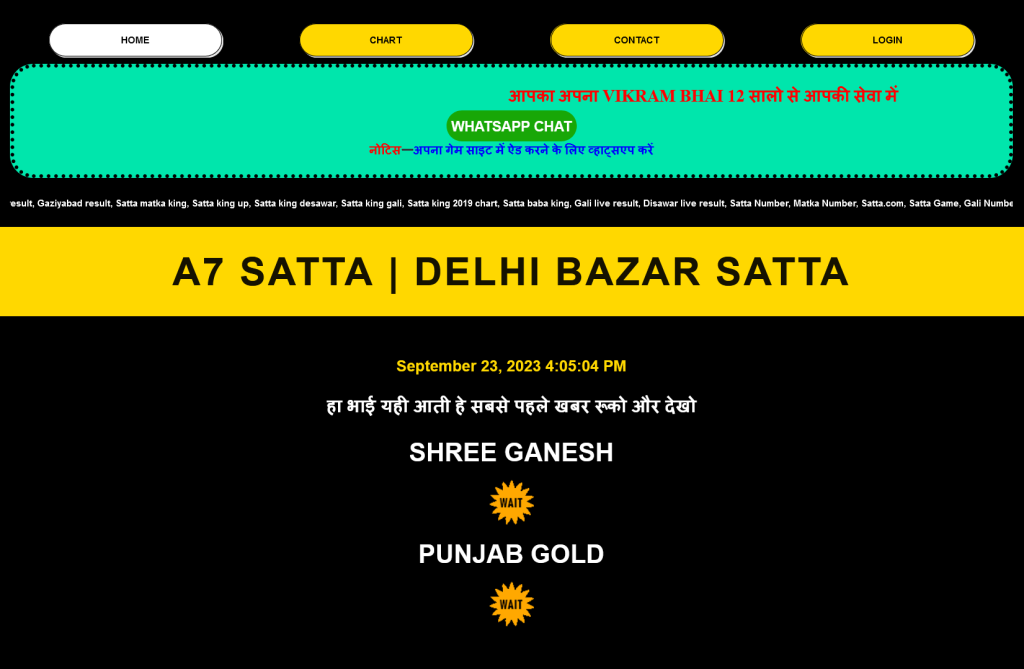The Allure of A7 Satta and the Satta King Gambling Game
In the world of gambling, there are countless games and forms of entertainment that draw in players from all walks of life. One such game that has gained immense popularity in recent years is A7 Satta and its variant, Satta King. These games, which have deep roots in India, have a unique charm that captivates both seasoned gamblers and newcomers. In this blog post, we will delve into the intriguing world of A7 Satta and Satta King, exploring their history, gameplay, and the controversies surrounding them.
Understanding A7 Satta and Satta King
A7 Satta and Satta King are both lottery-based gambling games that originated in India. While their precise origins are shrouded in mystery, they have been a part of Indian culture for decades. These games are usually played offline, but with the advent of the internet, online versions have also become increasingly popular.
How A7 Satta Works:

A7 Satta typically involves betting on a set of numbers between 00 and 99. Players choose a number or a combination of numbers and place their bets. After the betting period is over, a random number is drawn, and the winners are determined based on the matching numbers. The payouts can vary depending on the type of bet and the odds.
Satta King:
Satta King is a variation of the traditional A7 Satta game. In Satta King, players bet on numbers from 00 to 99, but the game offers different rates for each number. This variation adds an element of strategy, as players need to assess the odds and potential payouts before placing their bets.
Controversies Surrounding A7 Satta and Satta King
While A7 Satta King and Satta King have gained a massive following, they have also been mired in controversy. Here are some of the key issues associated with these games:
- Legal Ambiguity:
The legality of A7 Satta and Satta King varies from one region to another. In some Indian states, these games are considered illegal due to their association with gambling and betting. However, in other states, they operate openly and are widely accepted.
Comments
Post a Comment